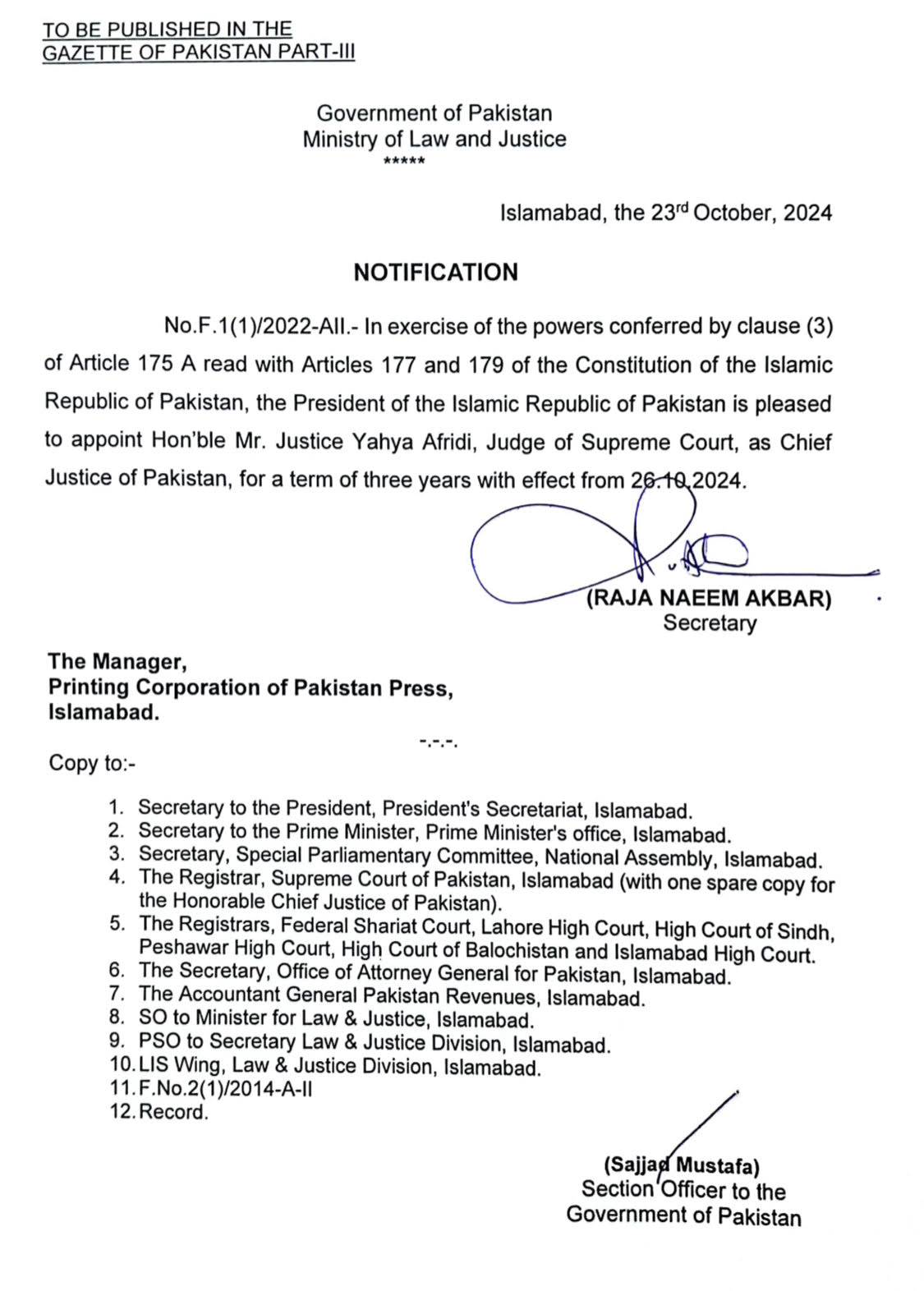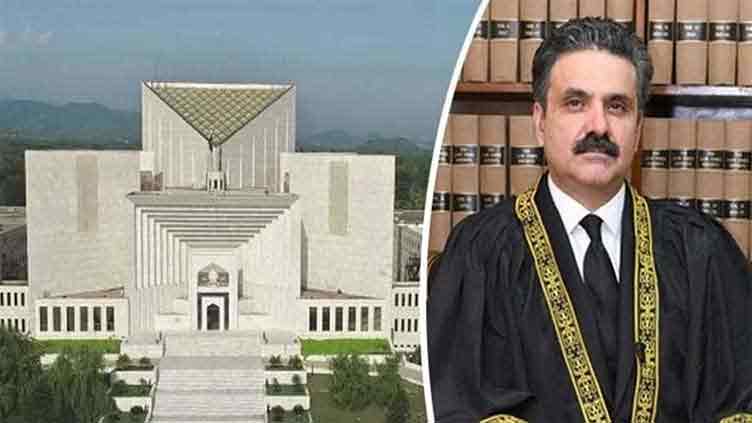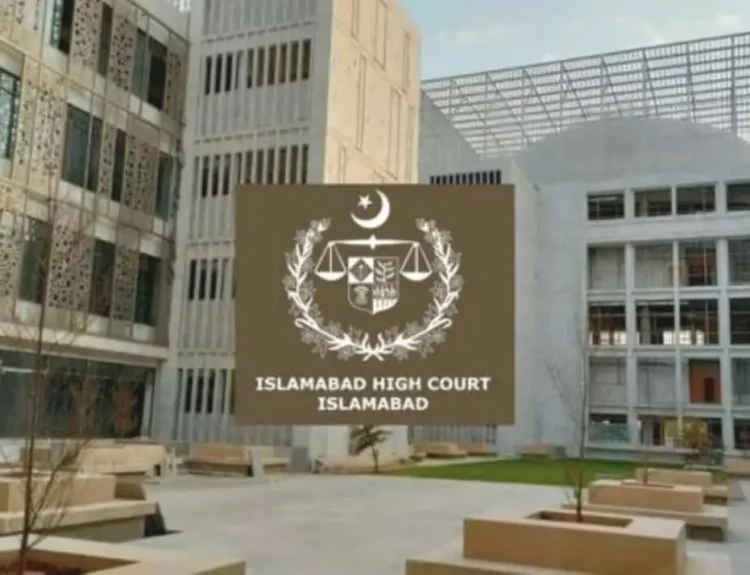Soon after the Special Parliamentary Committee has completed process for judging the judges with two third majority, President Asif Ali Zardari approved nomination of a junior judge as top court head in response to recently passed 26th Constitutional Amendment. Subsequently, Raja Naeem Akbar, Secretary of the Ministry of Law and Justice Wednesday notified Justice Yahya Afridi as Chief Justice of Pakistan for a three-year term commencing from October 26, 2024.
Earlier, President Asif Ali Zardari has assented to Justice Yahya Afridi, a Supreme Court justice, as the 30th Chief Justice of Pakistan. The President made the appointment of Justice Afridi for a period of three years with effect from October 26, 2024, according to a President House press release.
The appointment was made in exercise of the powers conferred under Articles 175 A (3), 177 and 179 of the constitution. President Zardari also approved October 26 as the date for administering the oath of office to Justice Afridi as the next Chief Justice of Pakistan.
The Special Parliamentary Committee nominated Justice Yahya Afridi as the Chief Justice of Pakistan after “thorough deliberations” late night. Earlier, the committee meeting was postponed till 8:30pm on Tuesday. The committee, which held its first round of meeting, was constituted for the first time in the country’s history for the appointment of the top judge.
Members of the Committee
The committee was formed following the 26th amendment and it comprised of representatives from both the National Assembly and the Senate. It comprised of MNAs Khawaja Asif, Ahsan Iqbal, Shaista Pervaiz Malik, Raja Pervez Ashraf, Syed Naveed Qamar, Rana Ansar, Gohar Ali Khan, Sahibzada Muhammad Hamid Raza, and Senators Farooq Hameed Naik, Azam Nazeer Tarar, Syed Ali Zafar and Kamran Murtaza.
The session took place at Room No 5 of Parliament House. The two other judges in contention were Justices Mansoor Ali Shah and Munib Akhtar. The outgoing Chief Justice Qazi Faez Isa is set to retire on Oct 25.
What major change 26th Amendment brings about in CJP appointment
The 26th amendment has brought about significant changes in the judicial appointments. For instance, under amendments to clause 3 of Article 175A, instead of the president appointing the “most senior judge of the Supreme Court” as the CJP, the top judge will now be “appointed on the recommendation of the Special Parliamentary Committee from amongst the three most senior” SC judges.
PTI-SIC did not participate
The meeting was held without members of the PTI and Sunni Ittehad Council in attendance. The National Assembly Secretariat said that the SIC members have taken final decision not to attend the parliamentary panel’s meeting. “The committee has been apprised of the SIC’s decision.”
Law Minister Azam Nazeer Tarar said efforts would be made to woo the PTI and SIC. And, he clarified, in case of their absence again, the committee would continue its proceedings.




